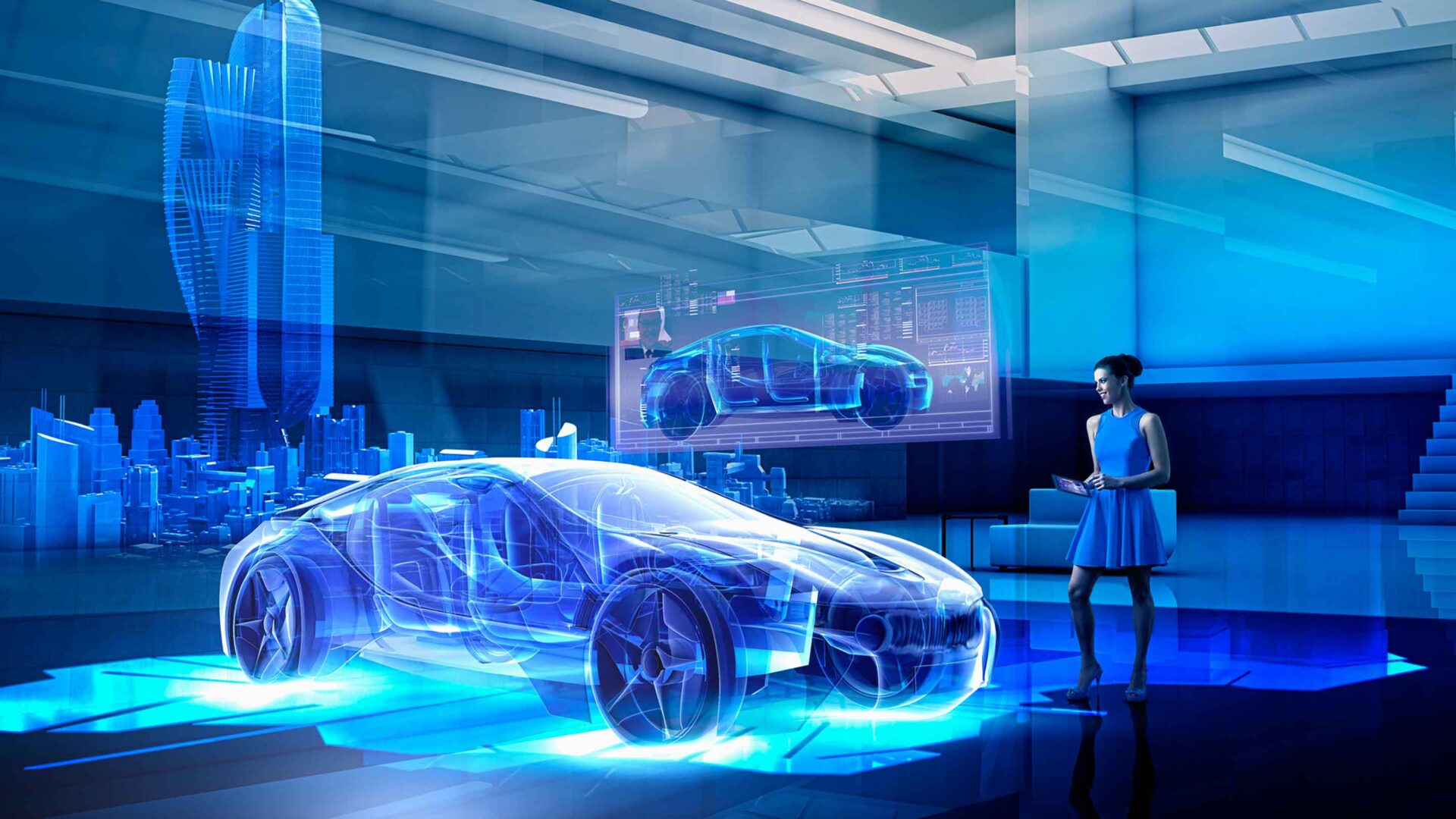Generative AI — artificial intelligence is a breakthrough technology that is reshaping various industries, including the automotive sector. This advanced form of artificial intelligence can generate new content, suggestions and solutions and offers a range of applications that increase efficiency, innovation and customer experience in the automotive industry. In this article, we explore the impact of generative artificial intelligence on automotive manufacturing, design, maintenance and customer service.
Understanding generative artificial intelligence
Generative Artificial Intelligence refers to algorithms that can create new content by learning patterns from existing data. Unlike traditional AI, which focuses on pattern recognition and making predictions, generative AI can create new designs, text, sound, and even entire environments. This technology uses deep learning models, especially generative adversarial networks (GANs) and variational autoencoders (VAEs), to achieve remarkable results.
Key Features of Generative Artificial Intelligence
- Creativity and Innovation: Generative AI can develop unique car designs, optimize aerodynamics, and create new features that improve performance and aesthetics.
- Efficiency: Streamlines the design process, reducing the time and costs associated with prototyping and testing.
- Personalization: This artificial intelligence enables personalized features and vehicle interiors, tailored to individual preferences and needs.
- Predictive Maintenance: By analyzing large amounts of data, generative artificial intelligence can predict and prevent potential problems, improving vehicle reliability and safety.
Application in car manufacturing
Design and prototyping improvements
Generative artificial intelligence is significantly influencing car design and prototyping. Traditional methods require multiple iterations and physical prototypes, which are time-consuming and expensive. Generative AI can simulate and test numerous design variants in a fraction of the time and identify the most efficient and innovative solutions.
Case Study: AI in Automotive Design
Companies like BMW and General Motors are using generative artificial intelligence to create lighter and more efficient vehicles. Using AI-generated designs, they can optimize structures for weight and strength, resulting in improved fuel economy and performance without compromising safety.
Streamlining production processes
In car manufacturing, generative artificial intelligence helps optimize production lines. It can analyze and predict the most efficient assembly methods, reducing waste and increasing productivity. Robots controlled by artificial intelligence can adapt to new tasks and ensure flexibility in production processes.
Example: AI in assembly line optimization
Tesla’s Gigafactories use generative AI to manage and optimize their assembly lines. This technology helps with real-time monitoring and adjustments, ensuring that production remains efficient and cost-effective.
Improving vehicle maintenance and safety
Predictive maintenance
One critical application of generative artificial intelligence is predictive maintenance. By analyzing data from various sensors in the vehicle, AI can predict potential breakdowns before they occur. This proactive approach reduces downtime and maintenance costs while increasing vehicle reliability.
Real World Applications: Predictive Analytics
Ford has integrated AI-driven predictive maintenance systems into its latest models. These systems alert the driver to potential problems, enable timely repairs and prevent breakdowns.
Improvements to security features
Generative AI contributes to the development of advanced security features. It can design better crash structures, optimize airbag deployment and improve overall vehicle safety systems. In addition, artificial intelligence is helping to create more sophisticated driver assistance systems that increase road safety.
Safety innovation: AI in vehicle safety
Known for its safety innovations, Volvo uses generative artificial intelligence to increase crash resistance and develop new safety technologies. This approach has led to safer vehicles and a reduced risk of injury in accidents.
Revolutionary customer experience
Personalized interactions with customers
Generative AI improves the customer experience by providing personalized interactions. AI-driven systems can recommend vehicles, features and services based on individual preferences and behavior. This personalization increases customer satisfaction and loyalty.
Example: Personalized car configuration
Audi’s AI-based configurator allows customers to personalize their vehicles down to the smallest detail, creating a unique shopping experience. The tool uses generative artificial intelligence to offer suggestions based on customer input, ensuring that each vehicle meets their specific needs.
Virtual Assistants and Support
Generative AI powers virtual assistants that provide real-time support and information to customers. These assistants can handle a wide range of inquiries, from vehicle specifications to service appointments, enhancing the overall customer service experience.
Implementation: AI Chatbots in customer service
Mercedes-Benz uses AI-driven chatbots to help customers with various questions. These virtual assistants are available 24/7 to provide immediate support and improve customer engagement.
The future of generative artificial intelligence in the automotive industry
The potential of generative artificial intelligence in the automotive industry is huge. As technology continues to evolve, we can expect more innovations in vehicle design, manufacturing, maintenance and customer service. Future improvements may include fully autonomous vehicles designed entirely by AI, further integration of AI into production lines, and even more personalized customer experiences.
Conclusion
Generative AI is revolutionizing the automotive industry by driving innovation, efficiency and customization. Its application in design, manufacturing, maintenance and customer service is changing the way vehicles are created, maintained and experienced. As automakers continue to embrace and integrate this technology, the future of the automotive industry looks more exciting and promising than ever.
Generative AI is not just a trend; it is a key force shaping the future of mobility. Adopting this technology will be key for automotive companies that want to remain competitive and meet evolving consumer demands.

